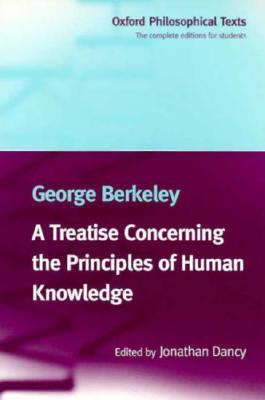What do you think?
Rate this book


237 pages, Paperback
First published January 1, 1710
"In vain do we extend our view into the heavens, and pry into the entrails of the earth, in vain do we consult the writings of learned men, and trace the dark footsteps of antiquity; we need only draw the curtain of words, to behold the fairest tree of knowledge, whose fruit is excellent, and within the reach of our hand."
If there is no such thing as matter, what is it, then, that we experience in the outside world? It is God’s Discourse. The world is living word. In Principles, as well as in most of Berekely’s other philosophical works, nature is seen as the “visual language” that God uses to speak with us. The things we see around us, their unfolding and succession, their changing into one another, are not meaningless occurrences, but they form divine speech; they say something about the “Author of Nature.” Introduction, Pg. XIII.The world only exists because it is perceived. Not only by us (or more appropriately me, because I can’t be sure you exist), but by the Spirit (codename : God) as well. It is the Spirit’s act of perception which maintains existence when I am not actively perceiving. It’s all very Hindu actually. There’s a story in which Vishnu sleeps dreaming of the universe and Brahma sits on a lotus growing from his navel. When Brahma opens his eyes, the world is created and, after millions of years, Brahma blinks and the world is destroyed only to be recreated when Brahma reopens his eyes. Or something close to that. Though I’m sure Berkeley, who was a Bishop in the Anglican Church, would object to the comparison.